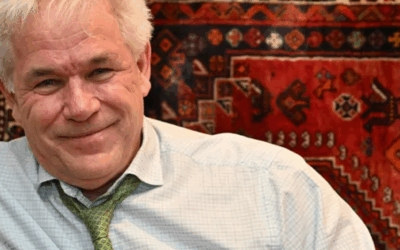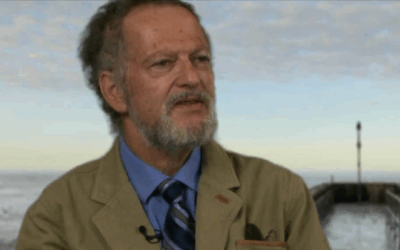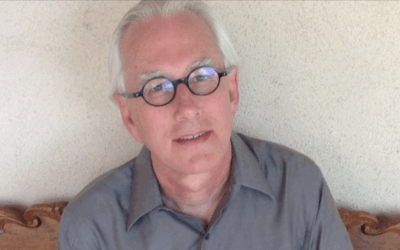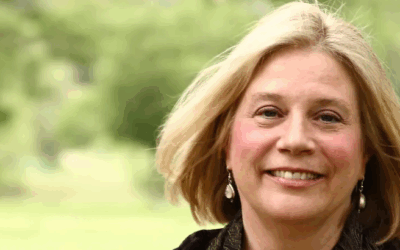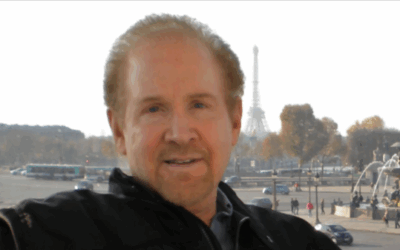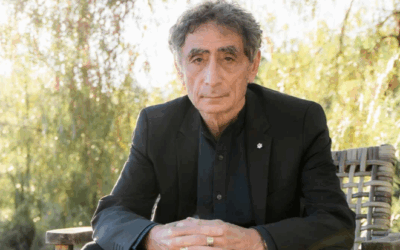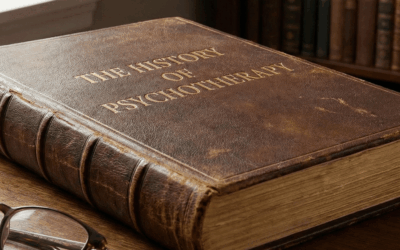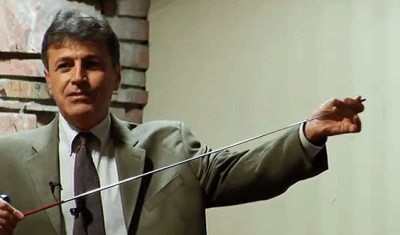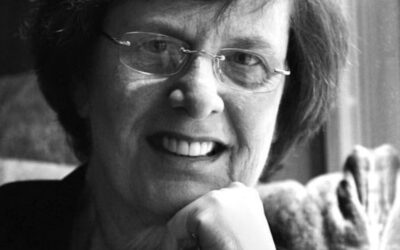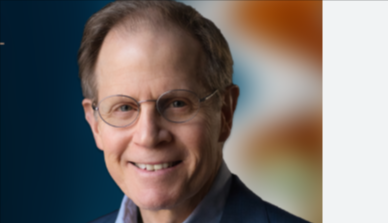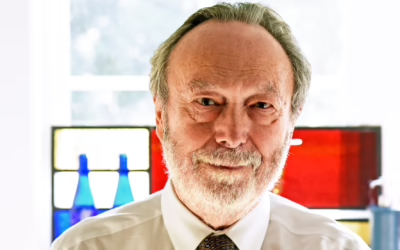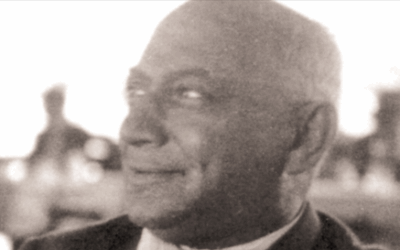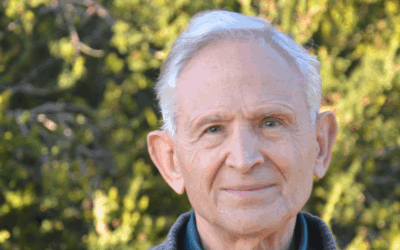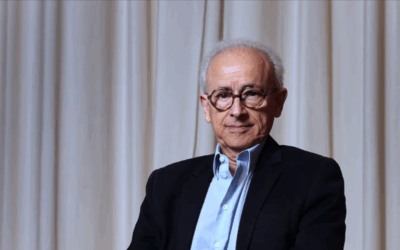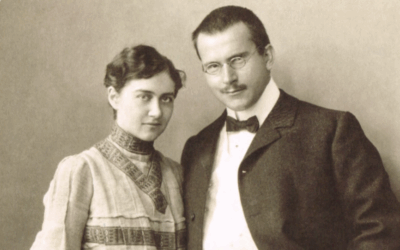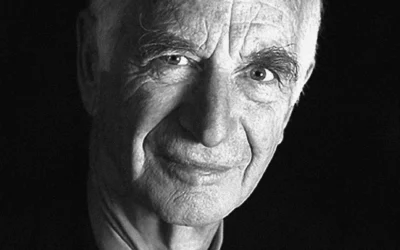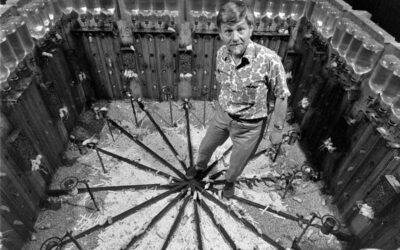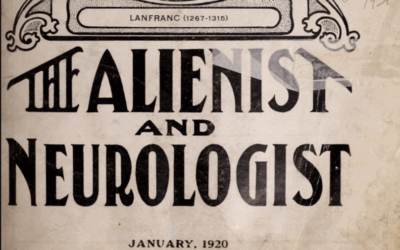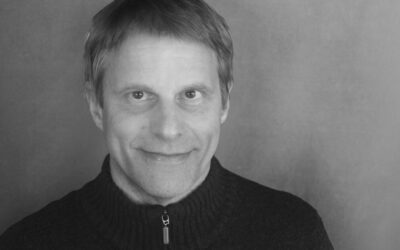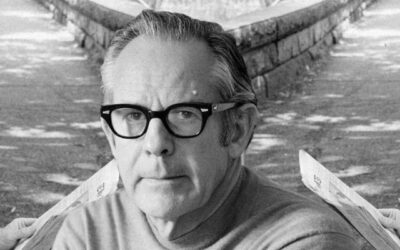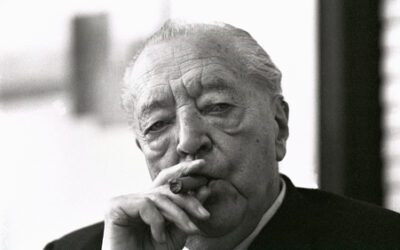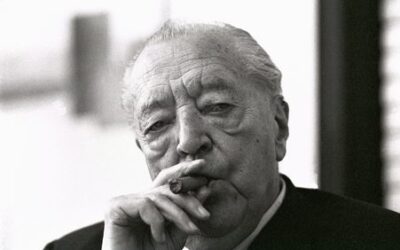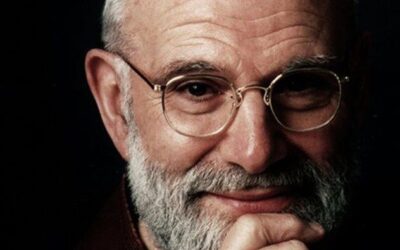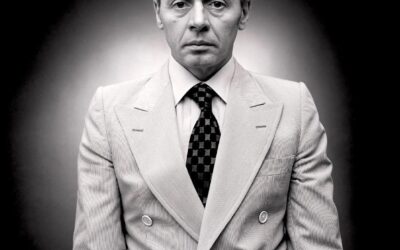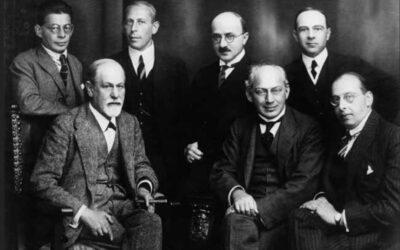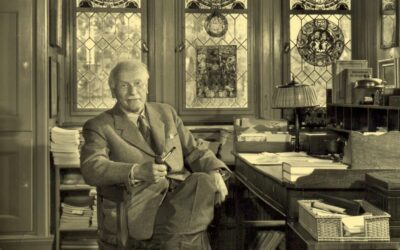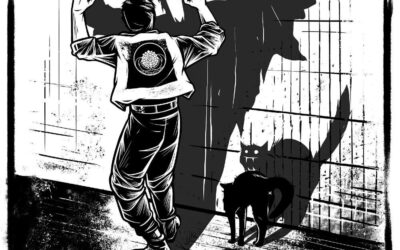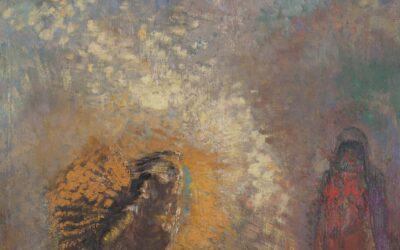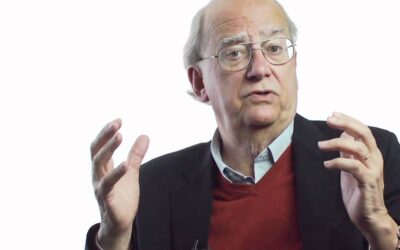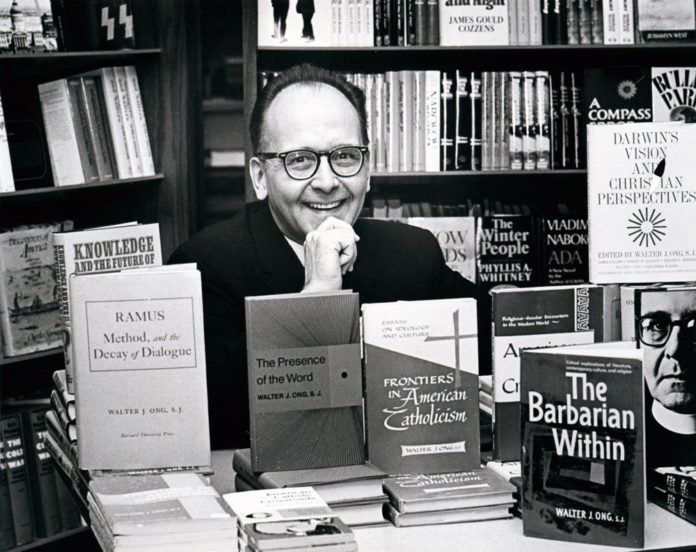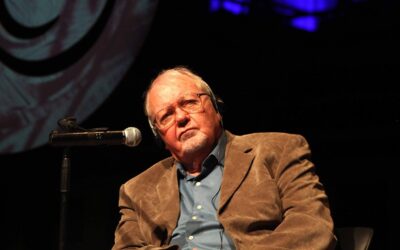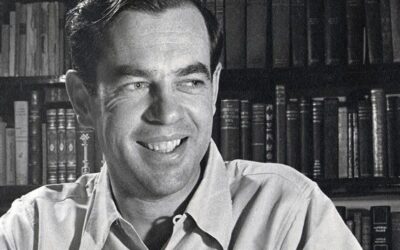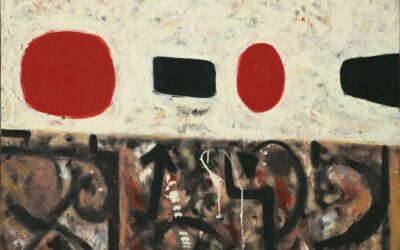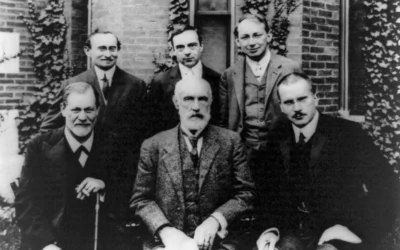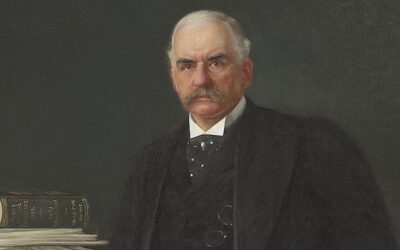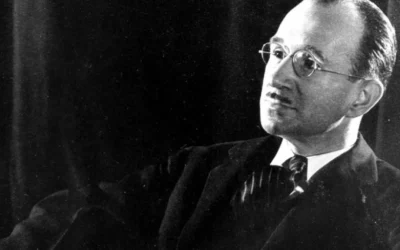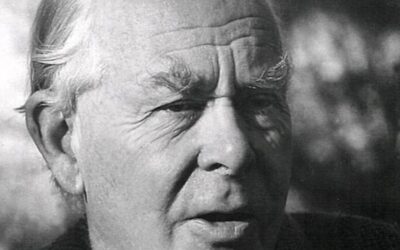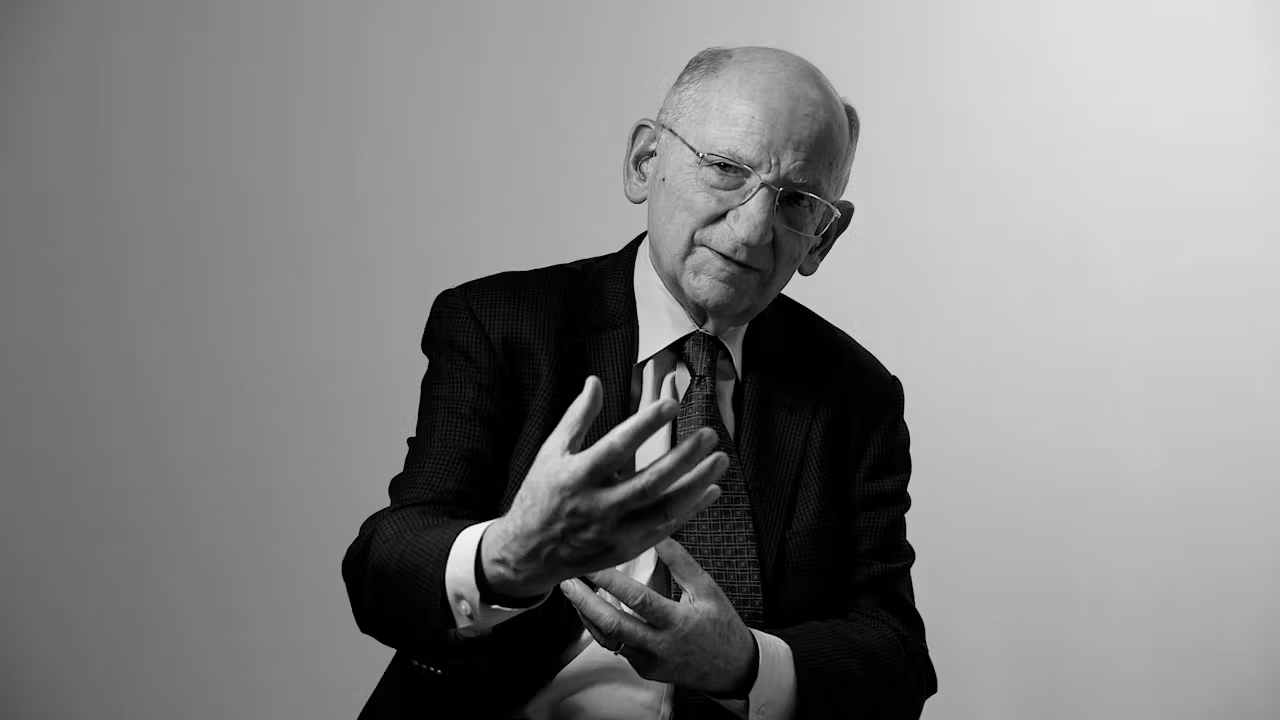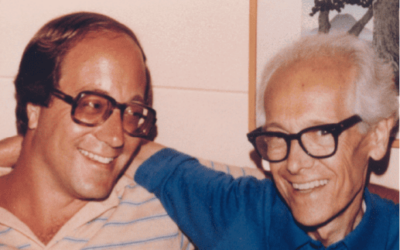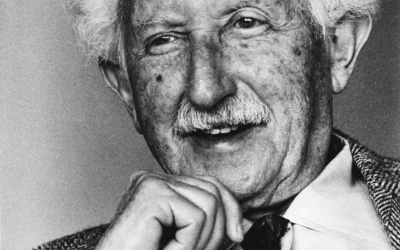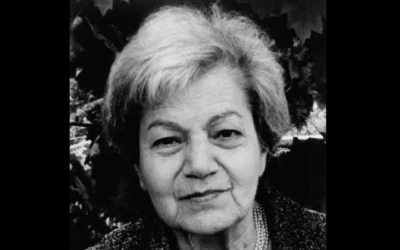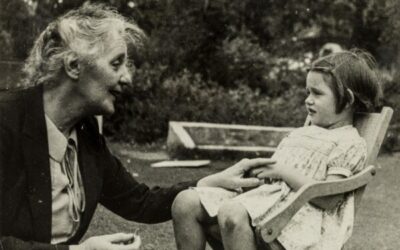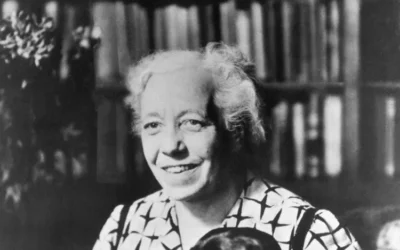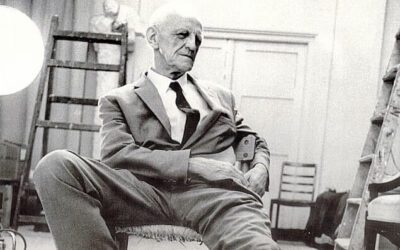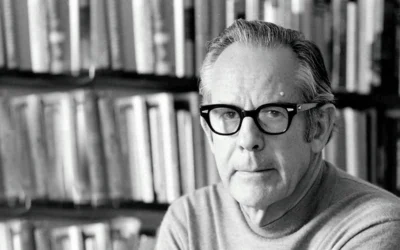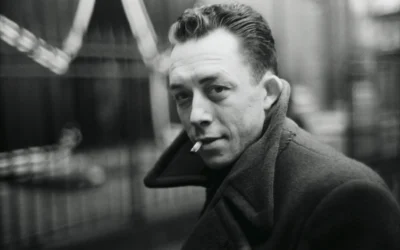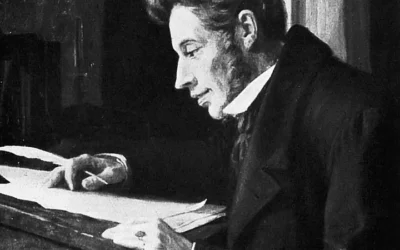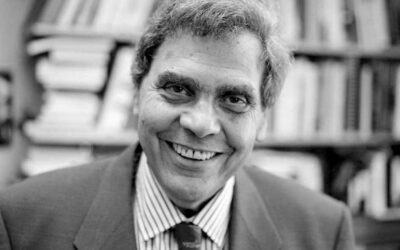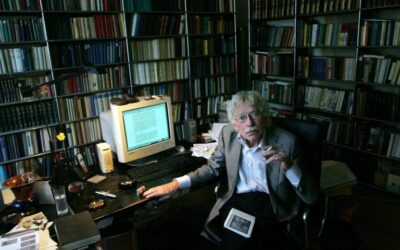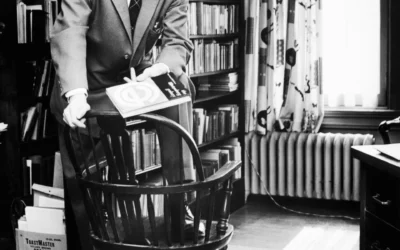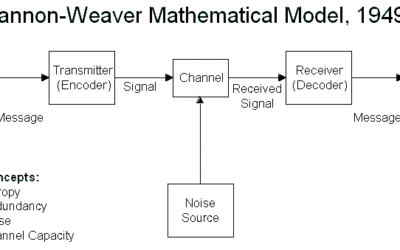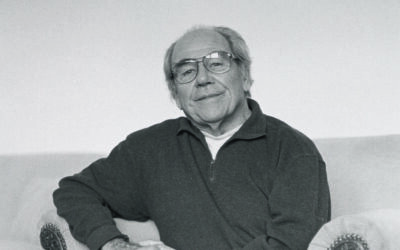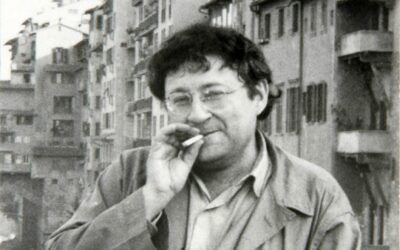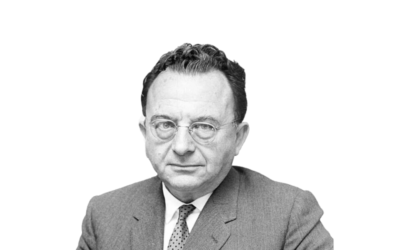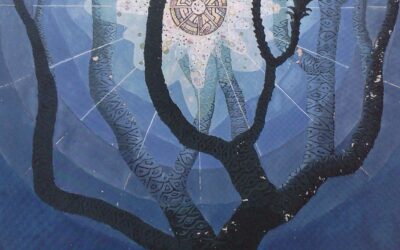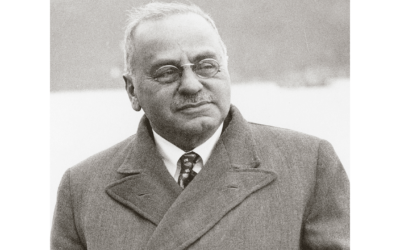The Ghost in the Machine Found For over a century, the sciences of the mind have been divided by a seemingly unbridgeable chasm. On one side stood psychoanalysis, the domain of subjective depth, unconscious drives, and the messy, symbolic language of the soul. On the other stood neuroscience, the domain of objective anatomy, neurotransmitters, and the rigid, mechanistic mapping of the brain. Sigmund Freud himself, a neurologist by training, abandoned his "Project for a Scientific Psychology" in 1895, despairing...
The Anatomy of Schism: A Comprehensive Historical Analysis of the Fifteen Greatest Feuds in Psychotherapy
An exhaustive analysis of the 15 biggest historical feuds in psychotherapy, from Freud vs. Jung to the modern Somatic vs. CBT wars. Explore the theories, the fights, and the modern verdicts.
Who Is Bernard Baars? The Cognitive Scientist Who Put Consciousness Center Stage
Why Understanding the Architecture of Mind Matters for Therapy Before we explore the life and revolutionary work of Bernard Baars, we need to understand why his ideas matter so profoundly for anyone working in the healing professions. Baars did not merely propose a theory of consciousness. He created a framework for understanding how the mind organizes itself, how information flows between conscious and unconscious processes, and why certain experiences capture our awareness while others remain forever hidden in...
The Primitive Present: How Historians in 2125 Will View the “Golden Age” of Modern Therapy
The Primitive Present: How Historians in 2125 Will View the "Golden Age" of Modern Therapy When we look back at the medical practices of the 19th century—bloodletting, mercury cures, and unsterilized surgeries—we shudder. We recognize that those doctors were doing their best with the limited maps they had. But it is harder to accept that in 100 years, future historians will likely look at our current mental health system with a similar mix of pity and fascination. They will see the 2020s not as the pinnacle of...
Bill O’Hanlon: The Therapist Who Asked “How Do People Get Happy?”
Bill O’Hanlon, MS, LMFT, studied with Milton Erickson as his only work/study student (serving as Erickson’s gardener) before co-founding Solution-Oriented/Possibility Therapy in the 1980s. Author of nearly 40 books including the Oprah-featured “Do One Thing Different” and foundational “In Search of Solutions” with Michele Weiner-Davis, O’Hanlon delivered over 3,700 presentations worldwide teaching his collaborative, non-pathologizing approach asking “How do people get happy?” rather than “What’s wrong?” He retired from clinical practice in 2020 to pursue professional songwriting from Santa Fe, New Mexico.
Diane Poole Heller: From Trauma Survivor to Pioneer of Attachment Healing
Diane Poole Heller, PhD, transformed her own 1988 traumatic car accident into a pioneering career developing DARe (Dynamic Attachment Re-patterning experience), a somatic approach integrating attachment theory and trauma resolution now taught worldwide. After 25 years as Senior Faculty for Peter Levine’s Somatic Experiencing Institute, she created Trauma Solutions and authored The Power of Attachment, teaching that regardless of childhood history, people can develop Secure Attachment Skills through attuned relationships, body-based interventions, and recognizing we’re all biologically hardwired for connection and healing.
Laurence Heller: The Clinical Psychologist Who Mapped How Developmental Trauma Distorts Identity
Laurence Heller, PhD, spent over 40 years in private practice recognizing that developmental trauma creates not just nervous system dysregulation but fundamental identity distortions—pervasive shame, self-judgment, and disconnection from authentic self. He developed the NeuroAffective Relational Model (NARM), now taught worldwide, mapping five adaptive survival styles arising from disrupted developmental needs (Connection, Attunement, Trust, Autonomy, Love-Sexuality) and providing framework for healing through disidentification from survival-based identities while working simultaneously with psychology and physiology within attuned therapeutic relationships.
Bruce Perry: From Branch Davidian Waco to “What Happened to You?” – Three Decades Translating Neuroscience into Healing for Maltreated Children
Bruce Perry developed the Neurosequential Model after treating children who survived the 1993 Branch Davidian siege in Waco. His three decades translating neuroscience into practical trauma treatment culminated in the #1 bestseller What Happened to You? with Oprah Winfrey. Perry’s fundamental insight: childhood behavior reflects developmental adaptation to environment rather than defect requiring correction, revolutionizing how thousands of professionals understand trauma.
Judith Herman: The Psychiatrist Who Named Complex Trauma and Challenged a Field’s Convenient Amnesia
Judith Herman, Harvard psychiatrist, transformed trauma treatment by distinguishing complex PTSD from single-incident trauma and articulating the three-stage recovery model emphasizing safety, remembrance, and reconnection. Her 1992 Trauma and Recovery challenged psychiatry’s “convenient amnesia” about sexual violence, while 2023’s Truth and Repair reimagines justice as healing rather than punishment, asking what survivors actually need: acknowledgment, validation, and community witness rather than retribution.
Gabor Maté: From Budapest Ghetto to Voice of Compassion in Addiction’s Darkest Corners
Gabor Maté, Holocaust survivor turned physician, spent twelve years treating severe addictions in Vancouver’s poorest neighborhood, asking “why the pain?” rather than “why the addiction?” His revolutionary recognition that addiction serves to escape unbearable emotions rooted in childhood trauma, detailed in bestseller In the Realm of Hungry Ghosts, transformed understanding of substance abuse from moral failing to developmental injury.
The Eternal Return of the Soul: How Modern Psychotherapy is Rediscovering its Ancient Roots Through Neuroscience
Discover how modern psychotherapy is rediscovering its roots. From Jung’s complexes to the somatic revolution, explore how neuroscience is validating ancient wisdom in the future of mental health treatment.
David Grand: From EMDR Trainer to Brainspotting Pioneer Through a Champion Skater’s Frozen Gaze
David Grand discovered brainspotting in 2003 when a figure skater’s eye wobble revealed where trauma was stored in her brain. By maintaining fixed eye position on that “brainspot” rather than using bilateral movement, processing accelerated dramatically. His development of this approach, now used by 13,000+ therapists worldwide, demonstrates how careful clinical observation combined with willingness to deviate from protocol can produce genuine therapeutic innovation for treating trauma, the yips, and performance blocks.
Richard Schwartz: From Failed Bulimia Study to Discovering the Internal Family System
Richard Schwartz discovered Internal Family Systems in 1982 when bulimic clients described distinct “parts” battling inside them, leading him to recognize the mind’s natural multiplicity. His development of IFS therapy, which helps Self lead an internal family of managers protecting against exiled pain and firefighters dousing emotional flames, has revolutionized how millions understand their inner conflicts. From failed outcome study to global therapeutic movement, Schwartz demonstrated that beneath protective parts, everyone possesses undamaged Self capable of healing.
Francine Shapiro: From Cancer Diagnosis to Revolutionary Trauma Treatment Through Eye Movements
Francine Shapiro discovered EMDR during a walk in 1987 when she noticed eye movements reduced disturbing thoughts. Her development of Eye Movement Desensitization and Reprocessing revolutionized trauma treatment, creating the first therapy to demonstrate rapid resolution of PTSD through bilateral stimulation activating the brain’s adaptive information processing system. Now recommended by WHO and DOD, EMDR has helped millions worldwide process traumatic memories that talking therapy couldn’t reach.
Janina Fisher: Revolutionizing Trauma Treatment Through Structural Dissociation and Parts Work
Janina Fisher revolutionized complex trauma treatment by integrating structural dissociation theory with parts work and somatic interventions. Discover her Trauma-Informed Stabilization Treatment (TIST) approach showing how recognizing fragmented selves as protective adaptations rather than pathology transforms healing for clients with treatment-resistant symptoms including self-harm, addiction, and chronic suicidality.
Bessel van der Kolk: The Psychiatrist Who Made Trauma Visible in the Body
Bessel van der Kolk revolutionized trauma treatment by proving trauma lives in the body. Discover his groundbreaking research on EMDR, yoga, neurofeedback, and MDMA therapy that transformed PTSD treatment and validated somatic approaches to healing developmental trauma.
Daniel Siegel: The Psychiatrist Who Mapped Integration as the Key to Mental Health
Daniel Siegel pioneered interpersonal neurobiology, revealing how integration of differentiated neural systems creates mental health. Discover his groundbreaking work on mindsight, the Wheel of Awareness practice, attachment neuroscience, and how relationships literally shape brain development throughout life.
Stephen Porges: The Neuroscientist Who Mapped Safety in the Nervous System
When Stephen Porges began studying heart rate variability in newborn infants in the early 1970s, he noticed something curious. Babies whose heart rates fluctuated rhythmically with their breathing, a phenomenon called respiratory sinus arrhythmia, responded better to stress and developed more robustly than infants whose heart rates remained steady. This subtle observation, pursued across five decades of research, would eventually revolutionize how clinicians understand trauma, attachment, social engagement, and...
Sándor Ferenczi: The Mother of Psychoanalysis and the Architect of Trauma Therapy
Explore the life and legacy of Sándor Ferenczi the pioneer of trauma therapy and relational psychoanalysis. Discover his theories on the confusion of tongues the wise baby and the active technique that revolutionized mental health care.
Peter Levine: The Biophysicist Who Taught Trauma to Speak Through the Body
Peter Levine revolutionized trauma treatment through Somatic Experiencing, proving trauma lives in the body’s nervous system. Discover how his work on completing frozen defensive responses, titration, and the SIBAM model provides somatic grounding for Jungian depth psychology and transforms PTSD healing.
Antonio Damasio: The Neuroscientist Who Proved Jung Right About the Body
Antonio Damasio revolutionized neuroscience by proving emotions guide rational thought through bodily signals. Discover how his somatic marker hypothesis validates Jung’s depth psychology and transforms trauma therapy through understanding interoception and embodied consciousness.
Toni Wolff: The Unseen Architect of the Feminine Psyche and the Shadow of Analytical Psychology
A comprehensive biography of Toni Wolff, the co-architect of Analytical Psychology. Explore her Structural Forms of the Feminine Psyche, her collaboration with Carl Jung, and the clinical relevance of her theories for modern therapy and self-discovery.
Who Was James Hillman?
An in-depth look at James Hillman, the founder of Archetypal Psychology, exploring his “Acorn Theory,” his critique of modern therapy, and his enduring influence on soul-centered practice.
The Giants of Behavioral Psychology Lives Legacies and Clinical Foundations
Explore the lives discoveries and lasting influence of the six giants of behavioral psychology including Pavlov Thorndike Watson Skinner Wolpe and Bandura. Learn how their groundbreaking research on classical conditioning operant conditioning systematic desensitization and social learning theory shaped modern evidence-based psychotherapy and continues to inform clinical practice today.
Albert Bandura: The Psychologist Who Revealed the Power of Observation and Belief
Explore the life and transformative contributions of Albert Bandura, the Canadian-American psychologist whose Bobo doll experiments and self-efficacy theory revolutionized our understanding of how people learn and change. Discover how his research on observational learning, social cognitive theory, and beliefs about personal capability continues to shape psychotherapy, education, health behavior, and our understanding of human potential.
Joseph Wolpe: The Pioneer Who Taught Us How to Unlearn Fear
The history of psychotherapy is filled with discoveries that emerged from unusual circumstances, and few are more striking than the origins of systematic desensitization. During World War II, a young South African physician named Joseph Wolpe was assigned to treat soldiers suffering from what was then called war neurosis, the constellation of symptoms we would now recognize as post-traumatic stress disorder. The prevailing psychoanalytic approaches seemed ineffective for these profoundly traumatized men, and...
B.F. Skinner: The Architect of Operant Conditioning and Modern Behavioral Science
Explore the life and revolutionary contributions of B.F. Skinner, the psychologist who developed operant conditioning and transformed our understanding of how consequences shape behavior. Learn how his research on reinforcement schedules, the Skinner box experiments, and behavioral principles laid the foundation for Applied Behavior Analysis, educational technology, and evidence-based behavioral interventions that continue to help millions of people today.
John B. Watson: The Revolutionary Who Transformed Psychology
Discover the revolutionary life and controversial legacy of John B. Watson, the American psychologist who founded behaviorism and transformed psychology from a philosophical discipline into an experimental science. Learn about the famous Little Albert experiment, Watson’s radical vision for psychology, and how his work laid the foundations for modern behavior therapy despite profound ethical concerns that continue to shape research standards today.
Edward Thorndike: The Architect of Consequence
Explore the lives discoveries and lasting influence of the six giants of behavioral psychology including Pavlov Thorndike Watson Skinner Wolpe and Bandura. Learn how their groundbreaking research on classical conditioning operant conditioning systematic desensitization and social learning theory shaped modern evidence-based psychotherapy and continues to inform clinical practice today.
Ivan Pavlov: The Accidental Revolutionary
It is one of the great ironies of scientific history that the father of behavioral psychology never considered himself a psychologist at all. Ivan Petrovich Pavlov was a physiologist consumed by the mechanical workings of the digestive system. He viewed the body as an intricate machine and devoted his professional life to understanding how the gears and levers of digestion operated. Yet in the course of this work, he stumbled upon a discovery that would revolutionize our understanding of learning and transform...
The Pragmatic Turn: William James, the Architecture of Consciousness, and the Roots of Modern Psychotherapy
A deep dive into the life and work of William James the father of American psychology. Explore how his battle with depression led to the theories of free will habit and the stream of consciousness that define therapy today.
The Fractured Soul: Politics, Schisms, and the Birth of Modern Psychotherapy in the Age of Nervousness
An exhaustive exploration of the origins of modern psychotherapy, detailing the conflicts between alienists, neurologists, and early psychologists. Discover the legacy of William James, S. Weir Mitchell, and Adolf Meyer in today’s clinical practice.
The Strategic Self: How Game Theory and the Free Energy Principle Reveal the Hidden Mechanics of Trauma Recovery
The Strategic Self explores the intersection of Karl Friston’s Free Energy Principle and Game Theory to offer a revolutionary understanding of trauma and recovery outlining how the brain’s predictive layers can be realigned for healing.
The Iron Consul: George B. Ward, the Psychology of Order, and the Roman Dream of Birmingham’s Mountain Prophet
Explore the extraordinary life of George B. Ward (1867-1940), Birmingham’s visionary mayor who built a Roman temple on Shades Mountain. This comprehensive psychological analysis examines Ward’s trauma-driven obsession with order, his City Beautiful movement, his flirtation with fascism, and the mystery of his burned papers—revealing how one man’s battle between chaos and control shaped a city’s identity.
What is an Alienist? The 19th-Century Doctors Who Forged Modern Psychiatry
You may have heard the term "alienist" in period dramas or novels, most famously in Caleb Carr's novel The Alienist. It sounds foreign, even unsettling. Yet, this antiquated job title represents one of the most important turning points in the history of mental health: the moment we stopped seeing "madness" as a moral failing or demonic possession and began to see it as a medical condition. So, what is an alienist? An alienist was a physician, prominent in the 19th and early 20th centuries, who specialized in the...
The Algorithmic Dream and Human Reality: Why Psychotherapy Cannot Be Reduced to Code
The Birth of Computational Psychiatry: Joseph Weizenbaum and ELIZA In the winter of 1966, MIT professor Joseph Weizenbaum sat in his office at the Artificial Intelligence Laboratory, watching with growing unease as his secretary engaged in what appeared to be an intimate conversation with his computer program. She had asked him to leave the room so she could have privacy with ELIZA, his simple pattern-matching program that mimicked a Rogerian psychotherapist. This moment would haunt Weizenbaum for the rest of his...
Subconscious vs Unconscious: The Epic Split Between Jung and Freud That Still Divides Psychology Today
🏛️ The Great Divide: When Giants Collided The relationship between Sigmund Freud and Carl Jung remains one of the most foundational and dramatic ruptures in modern intellectual history. It was a clash of titans that went far beyond a personal squabble, creating a fundamental schism in the young science of psychology that continues to define its different branches today. What began as a passionate friendship between the established father of psychoanalysis and his chosen heir descended into bitter acrimony by...
In Remembrance of Leon Krier
All experience is past by definition. Tradition is transmission of past experience which has become knowledge and know-how. Thus, we can with reason conclude that without tradition, there can be no language, no philosophy, no science, no technique, art, or industry. Why should architecture be an exception? - Leon Krier form Howard Roark: Defended Against His Admirers The Traditionalist Architect Who Built for the Future Leon Krier passed away this week, leaving behind a legacy that fundamentally challenged how we...
The Enduring Relevance of Alice Miller’s Drama of the Gifted Child
Why Therapists Must Consciously Embrace Their Wounded Healer Role Four decades after its publication, Alice Miller's "The Drama of the Gifted Child" remains one of the most important texts for understanding both the psychology of the helping professions and the hidden dynamics that can sabotage therapeutic relationships. Miller's insights into how sensitive children become caretakers—and how these caretakers often become therapists—offer crucial wisdom for contemporary mental health professionals navigating an...
The Prescient Wisdom of Dr. Shoma Morita: Metacognition, Eastern Philosophy, and the Limits of Psychopharmacology
The Prescient Wisdom of Dr. Shoma Morita: Metacognition, Eastern Philosophy, and the Limits of Psychopharmacology In the early 20th century, while Western psychiatry was still grappling with Freudian theories and the nascent field of psychopharmacology, a Japanese psychiatrist named Shoma Morita was developing a radically different approach to mental health. His insights, rooted in Eastern philosophy yet informed by medical training, anticipated many of the developments that Western psychology would only embrace...
The Secret Carl Jung: Uncovering the Censored Material from Memories, Dreams, Reflections
Carl Jung remains an enduring subject of fascination, his life and ideas sparking impassioned debate over 60 years after his death. As the founder of analytical psychology, Jung pioneered the exploration of the unconscious mind, dream interpretation, archetypes, and the quest for individuation. His theories have left an indelible mark on everything from psychotherapy and the arts to spirituality and popular culture. Yet even the most dedicated Jung scholars are often unaware of the full extent of his inner world...
John C. Lilly: When Dolphins, Drugs, and the Deep End of Consciousness Collided in the Psychedelic ’70s
The Mad Scientist Who Made Flipper Look Like a Documentary Picture this: It's 1965, and while most scientists are content with their lab coats and microscopes, one maverick researcher is floating in a pitch-black tank filled with body-temperature salt water, high on ketamine, trying to establish interspecies communication with dolphins. No, this isn't the plot of a B-movie (though it inspired several). This was Tuesday for Dr. John C. Lilly, the neuroscientist who took "thinking outside the box" to mean...
Wilhelm Reich’s Analysis of Fascism: Enduring Wisdom and Controversial Reception
Who Was Wilhelm Reich? Wilhelm Reich, a prominent psychoanalyst and philosopher, made significant contributions to the understanding of fascism through his groundbreaking work, "The Mass Psychology of Fascism." Despite the enduring wisdom of his analysis, Reich's ideas faced numerous challenges and controversies during his lifetime. In this article, we will explore Reich's perspective on fascism, the problems with his adoption by both psychoanalysts and communists, and the lasting impact of his work on political...
Who was Mesmer and WHat is Animal Magnetism?
From Mesmerism to Modern Psychotherapy: The Enduring Legacy of Franz Anton Mesmer and the Importance of Empirical Validation Franz Anton Mesmer, the 18th-century German physician, is often considered the father of modern hypnosis. His theory of animal magnetism, or mesmerism, posited that an invisible, universal fluid connected all living beings and could be harnessed for healing purposes. While his ideas were initially met with skepticism and ultimately discredited by a commission led by Benjamin Franklin,...
Unlocking the Power of Ericksonian Hypnosis: Crafting Personalized Guided Meditations
How to do Guided Meditation with Clients The renowned psychiatrist Milton H. Erickson was known for his unconventional yet highly effective approach to hypnosis and psychotherapy. One famous anecdote illustrates the essence of his technique: As recounted by Erickson's protégé Jeffrey Zeig, Erickson once watched Zeig, then a graduate student, prepare to smoke a pipe before a therapy session. Erickson proceeded to tell an elaborate, hour-long story about a friend who was hopelessly awkward with every aspect of pipe...
Who was Owen Barfield?
Prophet of the Evolution of Consciousness Owen Barfield (1898-1997) was a British philosopher, poet, and critic whose groundbreaking work focused on the evolution of human consciousness and its relationship to language and imagination. A close friend of C.S. Lewis and J.R.R. Tolkien, Barfield was a core member of the Inklings literary group and widely recognized as one of the twentieth century's most original thinkers. Born in London, Barfield studied at Oxford, where he first met C.S. Lewis in 1919. Their...
Who was Karl Kerényi?
How Ancient Myths Can Guide Modern Healing: The Work of Karl Kerényi As therapists who practice depth psychology, we often find that the ancient myths and stories of humanity hold profound wisdom for our modern lives. The patterns in these stories, or archetypes, can help us understand our own struggles, relationships, and paths to healing. One of the most important figures in this field was Karl Kerényi, a scholar whose work built a bridge between mythology and the human psyche. Who Was Karl Kerényi? Karl...
Who was Richard Maurice Bucke?
Richard Maurice Bucke and Cosmic Consciousness Richard Maurice Bucke (1837-1902) was a Canadian psychiatrist, philosopher, and mystic whose groundbreaking work explored the evolution of human consciousness and the nature of mystical experience. His most famous book, Cosmic Consciousness: A Study in the Evolution of the Human Mind, published in 1901, has become a seminal text in the study of transpersonal psychology and spirituality. In it, Bucke argued that humanity is undergoing a profound transformation,...
The Predictive Mind: Karl Friston’s Free Energy Principle and Its Implications for Consciousness
The nature of consciousness has long been one of the most profound and perplexing questions in cognitive science, neuroscience, and philosophy. How does subjective experience arise from the objective, physical processes of the brain? What is the relationship between mind and matter, between the inner world of thoughts and feelings and the outer world of neurons and synapses? In his revolutionary work on the Free Energy Principle (FEP), neuroscientist Karl Friston offers a compelling new perspective on...
Consciousness as Integrated Information: Tononi’s Theory and Its Implications for Machine Consciousness
From Integration to Fragmentation: How a Radical Theory of Consciousness Explains Trauma The question of consciousness—how a physical brain creates our rich, subjective inner world—is one of science's deepest mysteries. For centuries, we've grappled with how fleeting thoughts, vivid emotions, and a stable sense of "self" can emerge from biological tissue. But this question isn't just philosophical. For millions living with the aftermath of trauma, the nature of consciousness is a daily, painful struggle. In...
Viktor Frankl: Finding Meaning in the Face of Suffering
1. Who Was Viktor Frankl? Viktor Emil Frankl (1905-1997) was a pioneering psychiatrist, neurologist, philosopher, and Holocaust survivor whose groundbreaking work transformed our understanding of human suffering, resilience, and the search for meaning. Born in Vienna, Austria, Frankl survived three years in Nazi concentration camps, including Auschwitz and Dachau, an experience that profoundly shaped his therapeutic approach and philosophical outlook. His innovative theories integrated existential philosophy,...
The Theories and Ideas of Rollo May
Existential Psychotherapy and the Human Condition 1. Introduction: Rollo May and the Existential Approach Rollo May (1909-1994) stands as one of the most influential figures in American psychology, renowned for introducing existential psychology to the United States and reshaping therapeutic approaches through his integration of philosophy, psychology, and profound human insight. Just as Robert Moore would later bring archetypal psychology into mainstream consciousness, May bridged European existential philosophy...
Ludwig Binswanger: Pioneer of Existential Analysis
Ludwig Binswanger (1881-1966) was a seminal figure in the history of psychiatry and psychotherapy. As the founder of existential analysis or "Daseinsanalysis," he developed an innovative approach that fused insights from Martin Heidegger's existential philosophy with clinical psychotherapeutic practice. Binswanger's work profoundly influenced the development of humanistic, phenomenological, and existential schools of psychotherapy in the 20th century. His ideas provide an important bridge between the medical...
Medard Boss and Daseinsanalysis
A Phenomenological Approach to Human Existence 1. Who Was Medard Boss? Medard Boss (1903-1990) was a Swiss psychiatrist and psychoanalyst who pioneered Daseinsanalysis, a revolutionary approach to psychotherapy grounded in Martin Heidegger's phenomenological philosophy. After initially training in Freudian psychoanalysis, Boss underwent a profound intellectual transformation upon encountering Heidegger's work, which led him to develop a therapeutic approach that rejected the mechanistic, deterministic models of...
James F. T. Bugental: Existential Humanism
James F. T. Bugental (1915-2008) was a pioneering American psychotherapist and a key figure in the development of existential-humanistic psychology. Over a career spanning more than 50 years, Bugental made significant contributions to the theory and practice of psychotherapy, with a particular focus on the transformative power of authentic presence and the exploration of "life-changing moments" in the therapeutic encounter. This essay provides an overview of Bugental's key ideas and their enduring influence on...
Emmy van Deurzen: Existential Therapy Across Four Dimensions
Emmy van Deurzen is a leading contemporary existential therapist and philosopher based in Britain. Born in the Netherlands, she has been instrumental in developing the existential approach to psychotherapy and making it accessible to a wide audience. Key Ideas and Contributions Four Dimensions of Existence Central to van Deurzen's approach is the idea that human existence plays out across four dimensions: Physical Dimension: Encompassing the natural world and our bodily reality. It involves grappling with the...
R.D. Laing: Rethinking Madness and Sanity
Ronald David Laing (1927-1989) was a pioneering Scottish psychiatrist who challenged the conventional wisdom of his field, offering a provocative existential and social perspective on mental illness. His radical views, unorthodox therapeutic methods, and scathing critique of psychiatric institutions made him a counterculture icon of the 1960s and 70s, while also attracting controversy and opposition from the mainstream medical establishment. The Divided Self In his groundbreaking first book, The Divided Self...
Medard Boss: Pioneering Daseinsanalysis
Being-in-the-World Medard Boss (1903-1990) was a prominent Swiss psychiatrist and psychoanalyst best known for developing Daseinsanalysis, an approach to psychotherapy that integrated the phenomenological philosophy of Martin Heidegger with the insights of depth psychology. His innovative vision expanded the scope of psychoanalytic thought, grounding it in a holistic understanding of human existence as fundamentally embedded in the world. This article explores Boss's life, his key ideas, and his enduring impact...
The Theories and Ideas of Otto Rank
1. Who Was Otto Rank? Otto Rank (1884-1939) was an Austrian psychoanalyst, writer, and teacher who was one of Sigmund Freud's closest colleagues and most brilliant students. Rank made significant contributions to psychoanalytic theory before breaking with Freud and developing his own school of thought that emphasized the creative power of the will and the existential anxiety of life and death. Some of Rank's key ideas included: The Trauma of Birth: Rank saw birth as the original source of anxiety, when we leave...
How Did Jung and Freud’s Parents Effect Their Psychology
Is Religious Cosmology Just the Unlived Life of the Parent? A commonly quoted fact about astronomy is that the Universe is “expanding”, but that’s not really true. Our universe is nothing more than a giant ball of rules that we can measure. Rules like time, temperature, and distance. We say that the Universe is “expanding” because the amount of space we can measure inside it is increasing. We have no way of knowing what is outside of this ball of rules. It is doubtful that measurements like time and temperature...
The Development of Carl Jung’s Psychology: A Biographical and Intellectual Journey
Carl Gustav Jung (1875-1961) was a seminal figure in the history of psychology, whose original and wide-ranging thought laid the foundations for the field of analytical psychology. Over the course of his long career, Jung developed an extensive theoretical framework that encompassed such concepts as the collective unconscious, archetypes, psychological types, and the process of individuation. In this article, we will trace the development of Jung's ideas through the major periods of his life, exploring the...
Carl Jung’s Shadow: Holding the Tension of Opposites in Depth Psychology
Carl Jung's Tension of Opposites: Mapping the Psyche's Polarities for Healing and Wholeness One of Carl Jung's most profound yet often misunderstood ideas is the concept of the tension of opposites within the psyche. Far from a simple binary or a problem to be solved, this dynamic interplay of contrary forces is in fact crucial to the process of growth and individuation. As Jung wrote, "The self is made manifest in the opposites and in the conflict between them; it is a coincidentia oppositorum [coincidence of...
The Trial of Carl Jung: Assessing a Legacy
Was Carl Jung a Pseudoscientist? "The world today hangs by a thin thread, and that thread is the psyche of man." - C.G. Jung This trial will be an effort in intellectual history and retrospective assessment, not a literal legal proceeding. But it will draw on the judicial spirit of weighting evidence, calling expert witnesses, and rendering an impartial verdict. In that sense, it will be a trial in the court of informed opinion, one that will ask: How do Jung's legacy and the claims of analytical...
Consciousness and Depth Psychology: Insights from Michael Gazzaniga
What are the Origins of Conciousness? The nature of consciousness has long been one of the most profound and perplexing questions in psychology, neuroscience, and philosophy. How does subjective experience arise from the objective, physical processes of the brain? What is the relationship between mind and matter, between the inner world of thoughts and feelings and the outer world of neurons and synapses? In his groundbreaking book The Consciousness Instinct, neuroscientist Michael Gazzaniga offers a compelling...
Theodore M. Porter and the Critique of Quantification:
Implications Theodore Porter's Thinking in Psychotherapy and Mental Health Who is Theodore Porter? In his seminal work "Trust in Numbers: The Pursuit of Objectivity in Science and Public Life," historian of science Theodore Porter offers a compelling analysis of the rise and cultural authority of quantitative methods in modern society. Porter challenges the prevailing assumption that the power and prestige of numbers derive solely from their success in the natural sciences. Instead, he argues that to fully...
Walter Ong: Orality, Literacy, and the Jesuit Worldview
I. Who was Walter Ong Walter J. Ong (1912-2003) was an American Jesuit priest, professor of English literature, and cultural and religious historian. Ong made groundbreaking contributions to the fields of literacy studies, media ecology, and the evolution of human consciousness. His work explored the profound differences between oral and literate cultures and how the shift from orality to literacy has shaped human thought, expression, and social organization throughout history. As a Jesuit scholar, Ong's ideas...
Fredric Jameson: The Metamodern for Therapy
Metamodernism, Post-Spirituality, and Depth Psychology: Navigating Trauma in the Contemporary Era In our increasingly complex and fragmented world, the need for frameworks to understand the psyche, culture, and the spiritual dimensions of human existence has never been greater. Two thinkers who offer profound insights into these realms are cultural theorist Fredric Jameson and depth psychologist Carl Jung. By tracing the evolution of culture through the stages of modernism, postmodernism, and metamodernism, and...
The Mythic Wisdom of Joseph Campbell: Insights for Anthropology and Psychotherapy
Illuminating the Hero's Journey of the Human Soul by [Author Name] | [Date] "Myth is much more important and true than history. History is just journalism and you know how reliable that is." - Joseph Campbell 1. Who was Joseph Campbell Joseph Campbell (1904-1987) was an American mythologist, writer, and lecturer, best known for his work in comparative mythology and religion. His work is vast, covering many aspects of the human experience. Campbell's lifelong fascination with myth and his deep knowledge of...
The Existential Psychology of Viktor Frankl:
Finding Meaning in the Face of Suffering "Everything can be taken from a man but one thing: the last of the human freedoms — to choose one's attitude in any given set of circumstances, to choose one's own way." Viktor E. Frankl, Man's Search for Meaning Viktor Emil Frankl (1905-1997) was an Austrian psychiatrist, neurologist, philosopher, author, and Holocaust survivor who founded the school of logotherapy, a meaning-centered approach to psychotherapy. His harrowing experiences in Nazi concentration camps shaped...
The Object Relations Theory of Ronald Fairbairn:
A New Paradigm for Understanding the Self "The ultimate aim of the self is to be itself in relation to objects which are themselves." 1. Who was Ronald Fairbairn Ronald Fairbairn (1889-1964) was a Scottish psychoanalyst who played a pivotal role in the development of object relations theory. Diverging from classical Freudian drive theory, Fairbairn proposed a new model of the psyche centered on the individual's relationships with real and internalized others. His innovative concepts of the endopsychic structure,...
Otto Rank: Pioneer of Birth Trauma Theory and the Will in Psychoanalysis
Who was Otto Rank? Otto Rank (1884-1939) stands as one of the most innovative and controversial figures in the history of psychoanalysis. Rising from humble beginnings in Vienna to become one of Freud's closest collaborators, Rank ultimately developed his own distinctive therapeutic approach that emphasized birth trauma, creativity, and the human will. His theoretical departures from orthodox psychoanalysis, while initially met with hostility, have proven remarkably prescient, influencing humanistic psychology,...
The Interpersonal Theory of Psychiatry: Harry Stack Sullivan’s Vision of the Social Self
Who Was Harry Stack Sullivan? "We are all much more simply human than otherwise." - Harry Stack Sullivan The Revolutionary Vision of Harry Stack Sullivan Harry Stack Sullivan (1892-1949) emerged as one of the most innovative and influential psychiatrists of the twentieth century, fundamentally transforming our understanding of human personality and mental illness. His interpersonal theory of psychiatry represented a radical departure from the intrapsychic focus of traditional psychoanalysis, emphasizing instead...
John Bowlby and Attachment Theory: Revolutionizing Our Understanding of Human Relationships
Who was John Bowlby? "What cannot be communicated to the mother cannot be communicated to the self." - John Bowlby John Bowlby (1907-1990) stands as one of the most influential psychologists of the twentieth century, fundamentally transforming our understanding of human relationships, emotional development, and mental health. His attachment theory, developed through careful observation and innovative thinking, challenged the prevailing psychoanalytic dogma of his time and created a new paradigm for understanding...
Psychoanalytic Contributions of Otto Kernberg:
Bridging Object Relations and Clinical Innovation Who was Otto Kernberg? "The integration of love and aggression within the context of internalized object relations represents the core psychological task in personality development. When this integration fails, primitive defensive operations predominate, leading to the characteristic features of severe personality disorders." - Otto Kernberg Theoretical Foundations and Innovations Integration of Object Relations and Ego Psychology At the heart of Kernberg's...
The Self Psychology of Heinz Kohut: Revolutionizing Narcissism and the Psychology of the Self
Who was Heinz Kohut? "The most significant characteristic of human existence is neither biological drives nor unconscious wishes but rather the human need to have the self understood, validated, and supported by others." - Heinz Kohut The Revolutionary Vision of Heinz Kohut Heinz Kohut (1913-1981) emerged as one of the most innovative and influential psychoanalysts of the twentieth century, fundamentally transforming our understanding of narcissism, empathy, and the development of the self. His journey from...
The Psychosocial Theory of Erik Erikson:
“Explore Erik Erikson’s groundbreaking psychosocial development theory, from his eight developmental stages to his revolutionary concepts of identity formation. This comprehensive analysis examines how his work transformed psychology, education, and our understanding of human development across the lifespan, while remaining relevant in today’s digital age.”
Margaret Mahler’s Post Freudian Inovations in Attachment
Who Was Margaret Mahler? Margaret Mahler (1897-1985) was a Hungarian-born psychoanalyst who made seminal contributions to the field of developmental psychology. Best known for her separation-individuation theory of child development, Mahler's work illuminated the crucial role of the early mother-child relationship in the formation of individual identity. Through meticulous observation of infants and young children, Mahler mapped the process by which a child emerges from a state of total dependence on the mother...
The Psychoanalytic Theories of Melanie Klein
Exploring the Earliest Stages of Psychic Life "The early ego lacks cohesion, and a tendency towards integration alternates with a tendency towards disintegration, a falling into bits... The result is an acute feeling of insecurity." 1. Who Was Melanie Klein Melanie Klein (1882-1960) was an Austrian-British psychoanalyst who pioneered the field of child analysis and developed a groundbreaking theory of the infant psyche. Extending Freud's ideas, Klein mapped the earliest stages of psychological development,...
The Psychoanalytic Theories of Karen Horney:
Challenging Freud and Pioneering Feminine Psychology "The perfect normal person is rare in our civilization. There is no such thing as absolute normality within a complex culture. The tremendous psychological stresses and strains of present-day life fall too unevenly and too heavily to allow an even development." - **Karen Horney, The Neurotic Personality of Our Time** 1. Introduction: A Pioneering Voice in Psychoanalysis Karen Horney (1885-1952) stands as a towering, yet often underappreciated, figure in the...
The Developmental Psychology of D.W. Winnicott: Illuminating the Roots of Selfhood and Creativity
"The sense of being alive, the ability to feel real, to be genuinely spontaneous - these are the hallmarks of emotional health. And they all begin in the earliest interactions between mother and baby, in that sacred space where two beings meet and a self is born." The Theories and Ideas of D.W. Winnicott 1. Who Was Donald Woods Winnicott? Donald Woods Winnicott (1896-1971) was a pioneering British pediatrician and psychoanalyst whose innovative theories transformed our understanding of the emotional development...
Exploring the Contributions of Rollo May to Existential Psychotherapy
Exploring the Contributions of Rollo May to Existential Psychotherapy Who was Rollo May Rollo May (1909-1994) was an influential American existential psychologist and psychotherapist. He played a key role in introducing existential psychology to the United States and in shaping the humanistic psychology movement of the mid-20th century. May's work bridged the insights of European existential philosophy with the practical concerns of clinical psychology, offering a compelling vision of the human condition and the...
Exploring the Relevance of Albert Camus’ Ideas for Psychotherapy
Who was Albert Camus? Albert Camus (1913-1960) was a French philosopher, author, and journalist who is widely regarded as one of the most influential thinkers of the 20th century. His work explored the absurdity of the human condition, the search for meaning in a seemingly meaningless universe, and the challenge of living authentically in the face of life's contradictions. While not directly involved in psychology or psychotherapy, Camus' ideas have had a significant impact on existential and humanistic...
Exploring the Relevance of Søren Kierkegaard’s Ideas for Psychotherapy
Who was Søren Kierkegaard? Søren Kierkegaard (1813-1855) was a Danish philosopher, theologian, and author widely regarded as the first existentialist philosopher. His work explored the nature of human existence, emphasizing individuality, personal choice and commitment, and the struggle with anxiety and despair in the face of life's uncertainties. Kierkegaard's ideas profoundly influenced later existentialist thinkers as well as psychologists and psychotherapists grappling with the complexities of the human...
Neil Postman: Media Critic and Cultural Theorist
Who Was Neil Postman? Neil Postman (1931-2003) was an American media theorist, cultural critic, and educator whose work profoundly influenced our understanding of the relationship between media, technology, and culture. His incisive critiques of television, education, and the information age continue to resonate in today's digital landscape. This paper explores Postman's life, key ideas, and enduring legacy, examining the relevance of his thought to fields such as psychology, education, and media studies. II....
Friedrich Kittler: Theorist of Media and Technology
Friedrich Kittler: Digital Theory I. Who was Friedrich Kittler Friedrich Kittler (1943-2011) was a German literary scholar, media theorist, and cultural historian who made significant contributions to the fields of media studies, discourse analysis, and the history of technology. Kittler's work, which draws on a wide range of disciplines including literature, philosophy, psychoanalysis, and information theory, offers a provocative and influential perspective on the ways in which media technologies shape human...
Lev Manovich: Pioneering Theorist of New Media
Who is Lev Manovich? Lev Manovich is a pioneering theorist of new media, whose groundbreaking work has shaped the field of digital culture and media studies. Born in Moscow in 1960, Manovich's intellectual journey spans computer science, visual arts, media theory, and cultural analytics. His seminal book, "The Language of New Media" (2001), laid the foundation for understanding the unique characteristics and affordances of digital media, and their profound impact on contemporary culture and society. Biography of...
Jean Baudrillard: Philosopher of Hyperreality and Simulation
Simulacra and Simulation "We are in a logic of simulation, which no longer has anything to do with a logic of facts and an order of reason. Simulation is characterized by a precession of the model, of all the models based on the merest fact - the models come first, their circulation, orbital like that of the bomb, constitutes the genuine magnetic field of the event. The facts no longer have a specific trajectory, they are born at the intersection of models, a single fact can be engendered by all the models at...
The Revolutionary Life and Ideas of Guy Debord: Exploring the Situationist Critique of Modern Society
Guy Debord: Exploring the Situationist Critique of Modern Society I. Who was Guy Debord Guy Debord (1931-1994) was a French Marxist theorist, philosopher, filmmaker, and founding member of the Situationist International, a radical avant-garde movement that sought to transform everyday life through the fusion of art and politics. Debord's groundbreaking book "The Society of the Spectacle" (1967) presented a scathing critique of modern capitalist society, arguing that authentic social life had been replaced with...
Erich Fromm: Legacy and Relevance to Depth Psychology
1. Who Was Erich Fromm? Erich Fromm (1900-1980) was a renowned psychoanalyst, sociologist, and humanistic philosopher who made significant contributions to our understanding of the human condition in the modern world. Born in Frankfurt, Germany, Fromm was deeply influenced by the tumultuous events of the 20th century, including the rise of fascism, the Holocaust, and the Cold War. These experiences shaped his lifelong commitment to exploring the psychosocial roots of authoritarianism, alienation, and the...
From Analytical to Experiential: The Transformation of Post-Jungian Psychotherapy
What Happened to Jungian Therapy After Jung Died? Carl Gustav Jung, the founder of analytical psychology, left an indelible mark on the field of psychotherapy. His groundbreaking ideas about the collective unconscious, archetypes, and the individuation process have influenced generations of therapists and continue to shape our understanding of the human psyche. However, in the years following Jung's death in 1961, the landscape of Jungian psychotherapy began to shift in ways that some argue strayed from the core...
The Unfinished Legacy of Alfred Adler: Revisioning Psychology for Social Transformation
"The human psyche is shaped by the interplay between inner drives and outer cultural forces. For every dominant social pattern, the unconscious generates a compensatory movement, seeking to restore balance and wholeness. By understanding these cultural-psychological dynamics, we can work towards greater self-awareness, social responsibility, and holistic well-being." -Alfred Adler Who Was Alfred Adler? Alfred Adler (1870-1937) was an Austrian medical doctor, psychotherapist, and founder of the school of...
Lessons on Acceptance from Irvin Yalom’s Existential Psychotherapy
The Stages of Grief as Defelection from Existential Dread We all go through the stages of grief all of the time: The stages of grief - denial, anger, bargaining, depression, and acceptance - represent common emotional reactions to loss and change (Kübler-Ross & Kessler, 2005). However, they can also be seen as ways we deflect away from reality to pretend our interior emotional spaces can control external circumstances. In the depths of grief, we rage against what is, bargain for a different outcome, and sink...
James George Frazer: Pioneering Insights into Myth, Religion, and the Psyche
Who was James George Frazer? James George Frazer (1854-1941) was a groundbreaking Scottish anthropologist, folklorist, and classical scholar whose work laid the foundations for modern anthropology, psychology, and comparative religious studies. Best known for his monumental study of myth and religion, The Golden Bough, Frazer pioneered the comparative method in anthropology, seeking to unveil universal patterns and evolutionary sequences in human beliefs and practices across cultures. His ideas not only shaped...
Alvar Aalto: Organic Modernism and the Humanization of Design
Who was Alvar Aalto? Alvar Aalto (1898-1976) was a Finnish architect and designer whose work synthesized modernist ideals with a deep reverence for nature and humanism. Over a career spanning more than five decades, Aalto created a vast body of work that included buildings, furniture, glassware, and textiles, all united by a common vision of organic harmony and human-centered design. From his early experiments in bent wood furniture to his monumental civic centers and churches, Aalto's designs embodied a unique...
Arne Jacobsen: Organic Modernism
Who was Arne Jacobsen? Arne Jacobsen (1902-1971) was a seminal figure in Danish modernist architecture and design. Over a prolific career, Jacobsen created a visionary body of work that fused the clean minimalism of the International Style with a distinctively Scandinavian sense of warmth and humanism. His buildings and furnishings exemplified a philosophy of "organic modernism," embracing the latest technologies and materials while remaining grounded in the tactility of nature and the contours of the human body....
Ludwig Mies van der Rohe: Architect of the Modern Age
Who was Ludwig Mies van der Rohe? Ludwig Mies van der Rohe (1886-1969) was a towering figure in the history of modern architecture, whose influence continues to shape the built environment well into the 21st century. Over a career spanning more than half a century, Mies developed a distinctive vision of structural clarity and spatial poetry that redefined the very language of building. From his early experiments in European modernism to his iconic American skyscrapers, Mies pursued an architecture of essential...
Niels O. Möller: Master of Danish Modern Chair Design
Who was Niels Moller? Early Life and Training Niels Otto Möller was born in 1920 in Aarhus, Denmark. The son of a shoe manufacturer, Möller developed an appreciation for craftsmanship and materials from an early age. As a young man, he trained as a cabinetmaker before studying at the prestigious Danish School of Arts and Crafts in Copenhagen. After completing his education in 1944, Möller returned to Aarhus and opened his own workshop and design studio. There he began experimenting with chair designs, honing the...
Hans J. Wegner: The Master of Chairs and teh Danish Modern
Hans J. Wegner: Archetypes of Danish Chair Design Hans J. Wegner (1914-2007) was a pioneering Danish furniture designer whose work helped define the aesthetic of mid-century modern design. Over a prolific career spanning nearly seven decades, Wegner crafted a stunning array of chairs that married the sleek functionality of modernism with the warmth and organic sensibility of natural materials. His designs, at once timeless and utterly original, gave expression to the deepest principles of form and craftsmanship....

